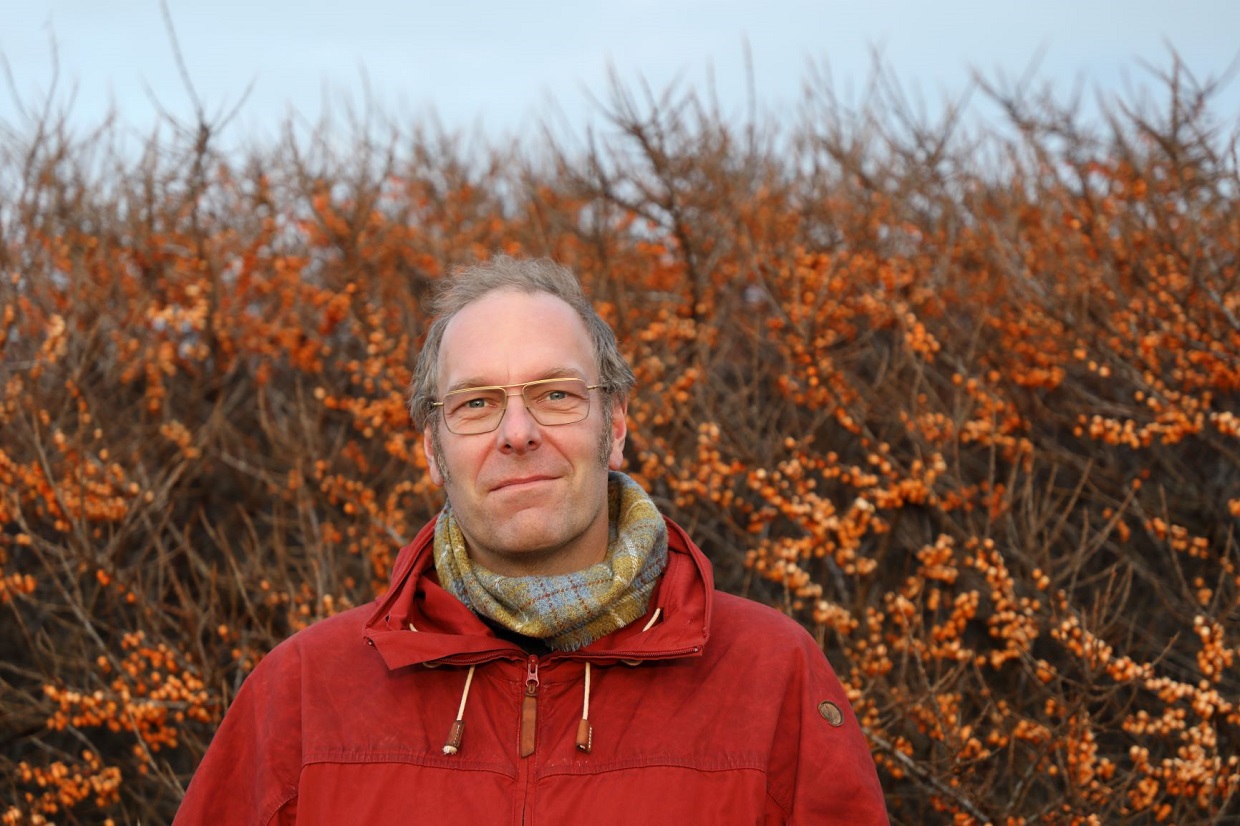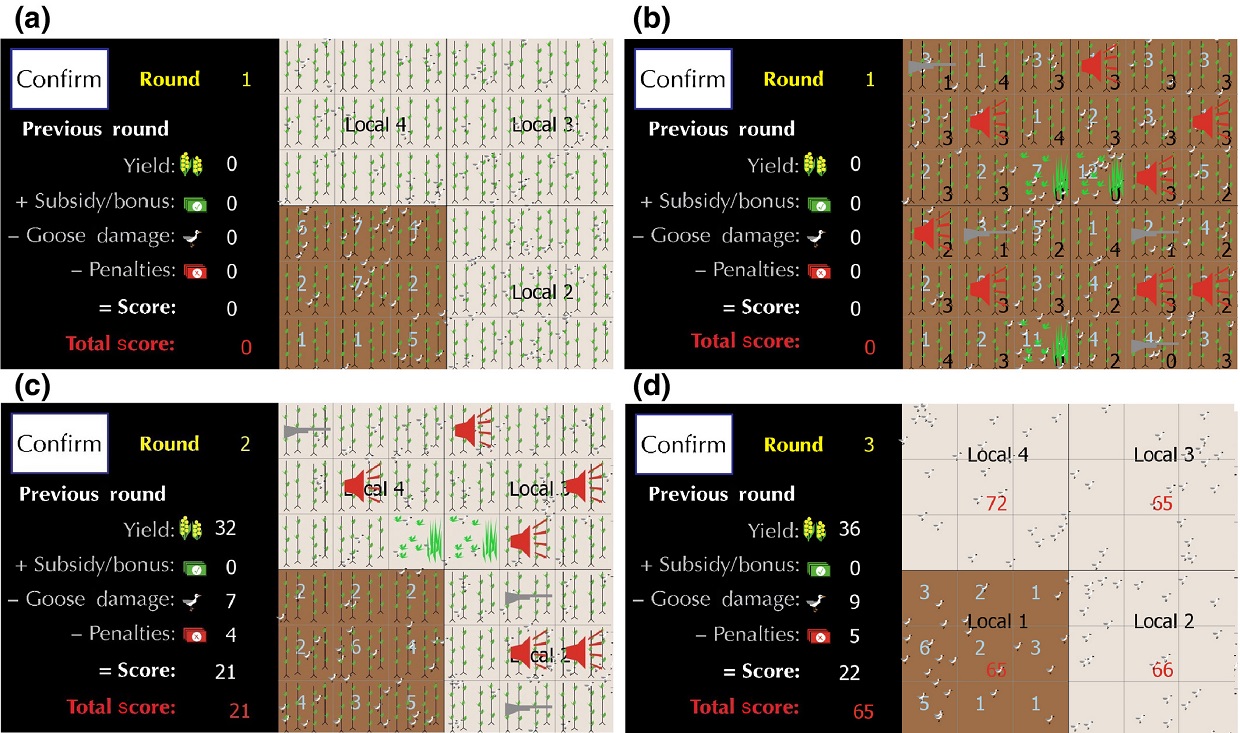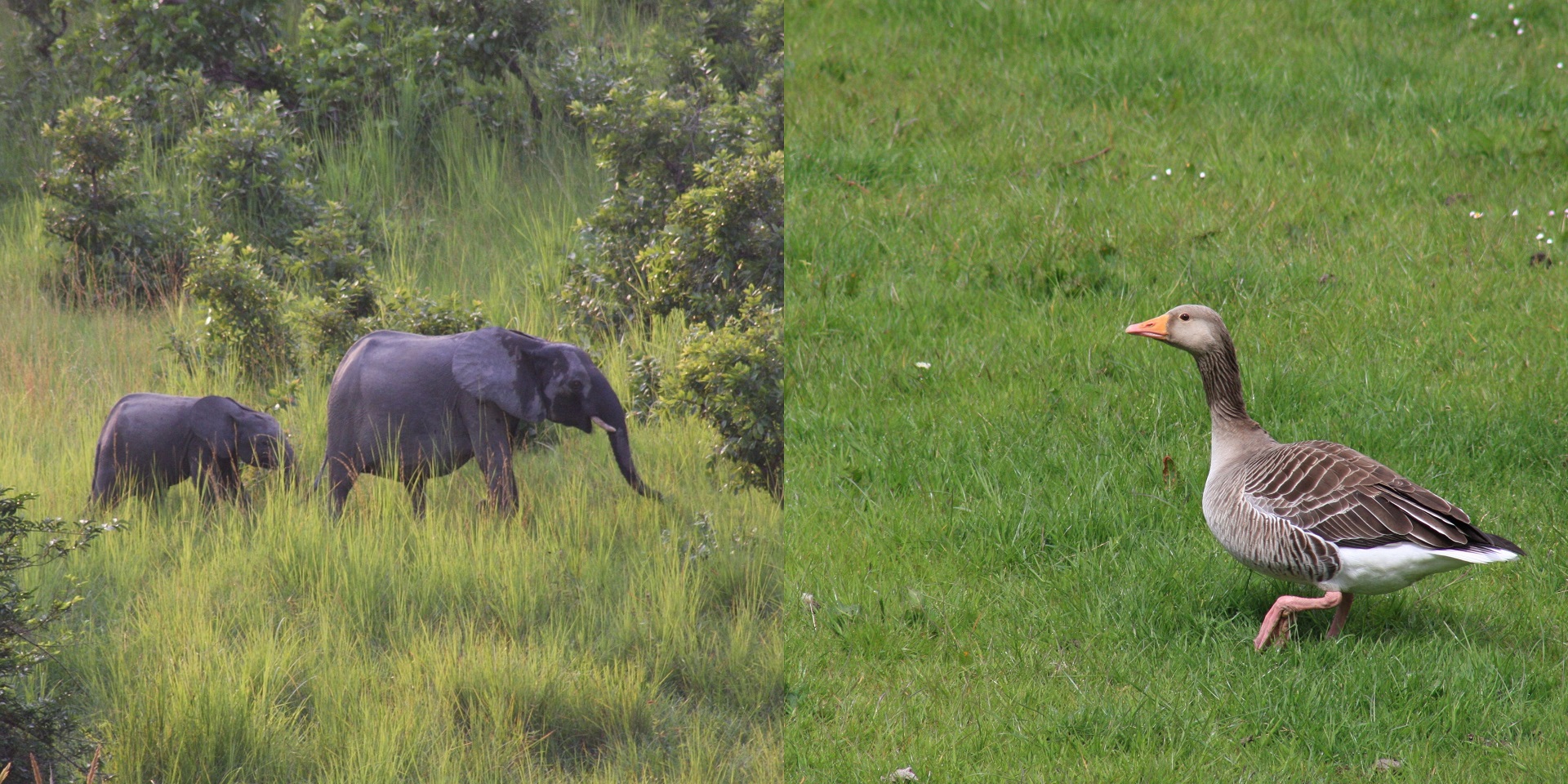Farmers are more likely to protect wildlife on their land if they trust their local communities and government, according to a new University of Stirling study.
The findings emerged from an innovative research project, which involved farmers in Orkney and Gabon playing a game on an electronic tablet, in which they had to choose how to deal with wildlife that would damage their crops - geese in Orkney and elephants in Gabon.
In the game, designed by Stirling researchers, the farmers had to choose whether to kill the wildlife, scare it away or sacrifice some crops to allow the wildlife to co-exist on their land. The results provide an important insight into how farmers make decisions when balancing biodiversity with food production.

Dr Sarobidy Rakotonarivo
Lead author, postdoctoral reserach fellow Dr Sarobidy Rakotonarivo, now at the Université d'Antananarivo, Madagascar, said: “Our study highlights the importance of understanding the social and political context at a local scale, when trying to find beneficial outcomes for different stakeholder groups in conservation. Furthermore, it demonstrates how experimental games can be used to help address conservation conflicts in a wide range of settings.”
Farmers chose not to eradicate wildlife
“We were surprised at the results,” said senior researcher Professor Nils Bunnefeld, of Biological and Environmental Sciences at the University of Stirling. “Shooting and eradicating the animals was perfectly possible in the game, and would have been the easiest option for the farmers, because if you scare them they will come back and eat your crops. But they didn’t choose to kill all the wildlife, they said, actually, wildlife is a part of our life.”

Professor Nils Bunnefeld
Dr Rakotonarivo, Professor Bunnefeld and their team were funded by the European Research Council’s ConFooBio project. The game was then played by 260 farmers in Gabon and 84 in Orkney on tablet computers.
“The conflict between agricultural needs and conservation is increasingly complex,” said Professor Bunnefeld. “This research showed that the farmers’ actions towards conservation in the game actually depended on the trust they had in the system, rather than only the points – or, in real terms, the money – they were offered.
Trust and perceptions of fairness were as important as money
“In Gabon, elephants are protected – killing them is not allowed by law," sid Dr Rakotonarivo. "Therefore, getting direct responses on killing behaviour is difficult because of its illegal nature. The game provided a safe environment to explore local farmers’ propensity to engage in elephant killing. In the game, we found that where the farmers felt they had a say in government policies, and where they lived near a national park and had seen local investment, they showed more tolerance for elephants than farmers who felt they had no say in management, and those that lived near logging concessions. The latter highlights the need to address conservation conflicts beyond protected areas.
“In Orkney, where you can apply for a license to shoot geese, the positive effect of the financial rewards on farmers’ pro-conservation behaviour was greatest when farmers had higher levels of trust in other farmers in their community. Farmers who thought financial compensation for goose damage was unequally distributed in Scotland were less likely to sacrifice crops for geese.”

The game interface as it appears on a tablet
The game also introduced different kinds of financial incentives – increasing payments for the size of land spared for wildlife, for example, and a fixed payment through subsidies – which did encourage pro-conservation behaviour.
“It was the interaction with trust and equity issues that showed the biggest shift in behaviour,” Professor Bunnefeld said. “Policy makers tend to focus on investment and financial reward for farmers, but this research showed trust in those making decisions, and having a say in policy and management, was as important.”
The research was carried out in partnership between the University of Stirling and the Gabon National Parks Agency (ANPN).
The Gabon research is detailed in the paper ‘The role of incentive-based instruments and social equity in conservation conflict interventions’, published in Ecology and Society.
The Orkney research is detailed in the paper ‘Experimental evidence for conservation conflict interventions: The importance of financial payments, community trust and equity attitudes’, published in People and Nature.

